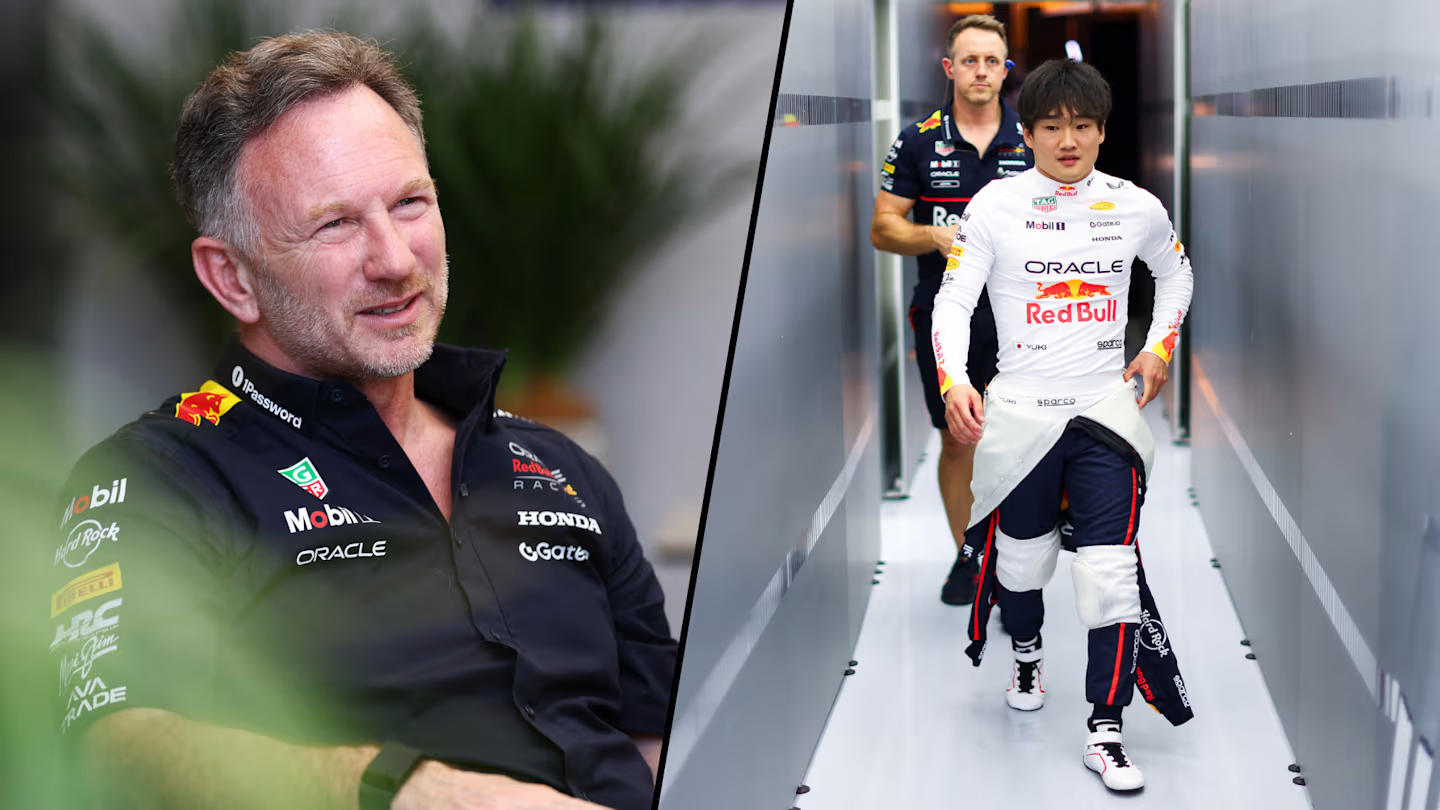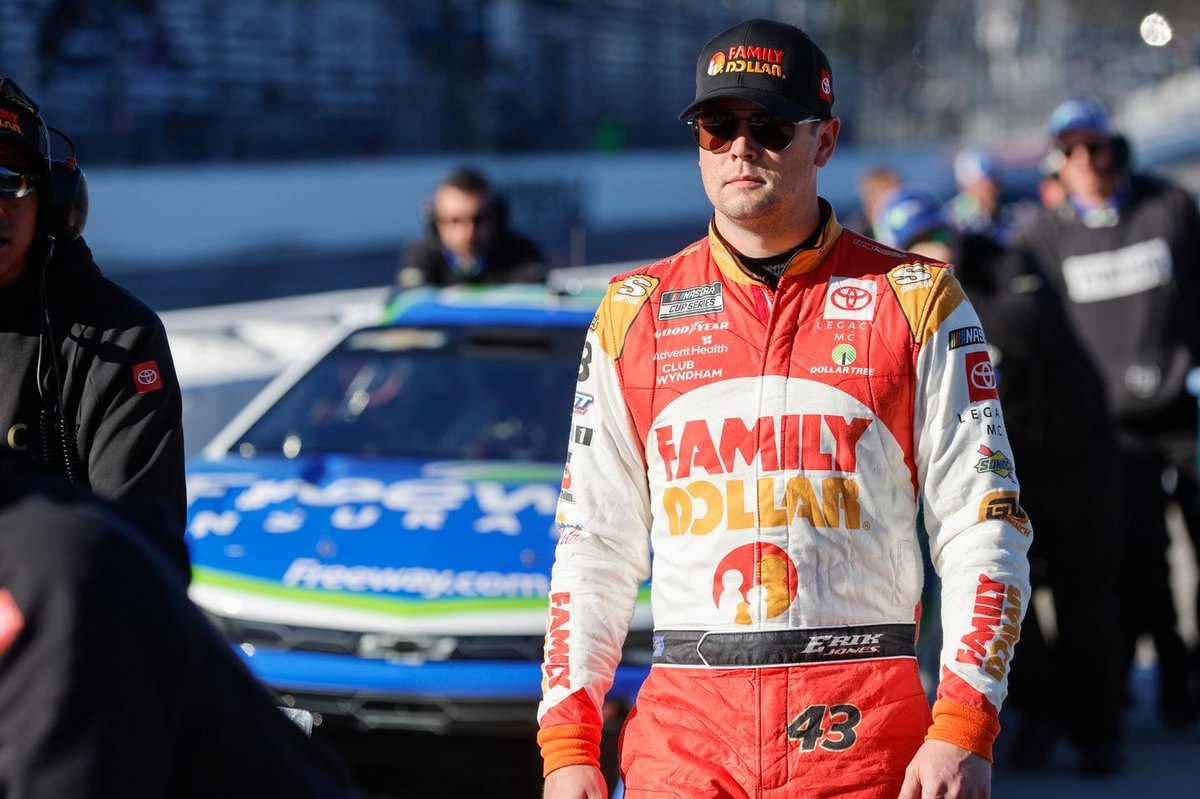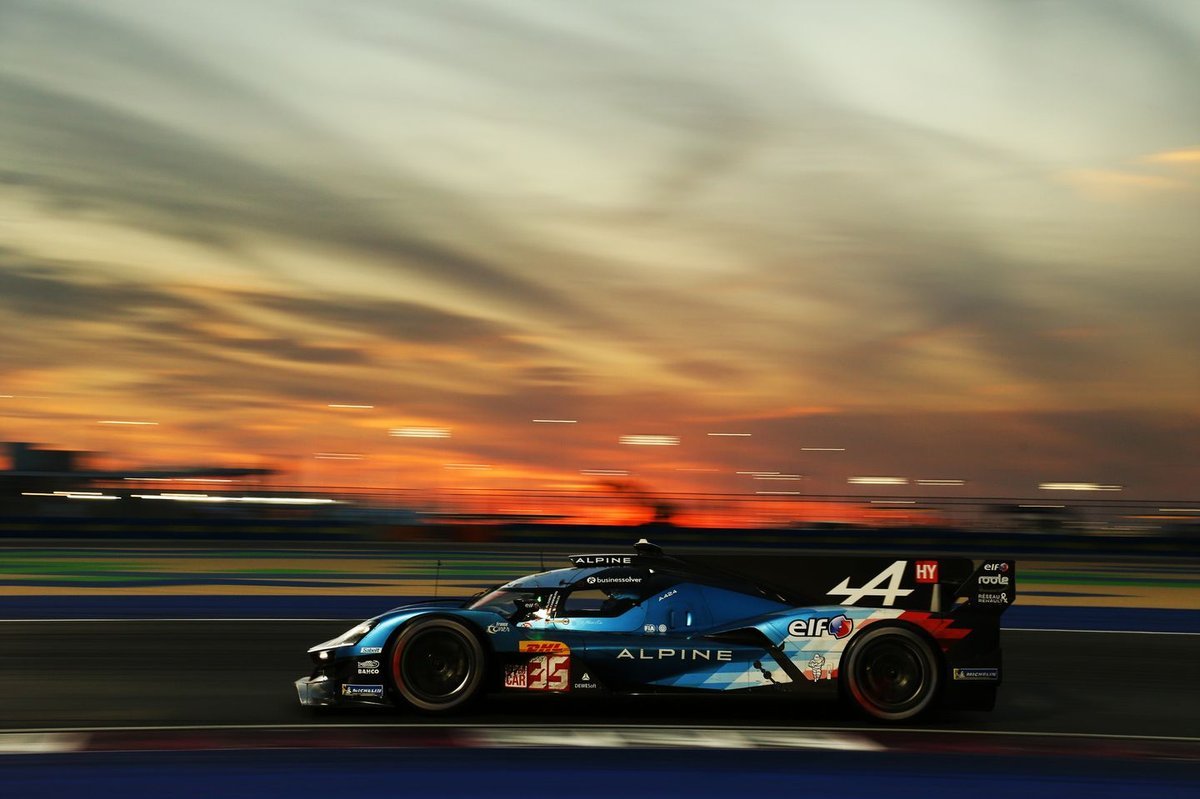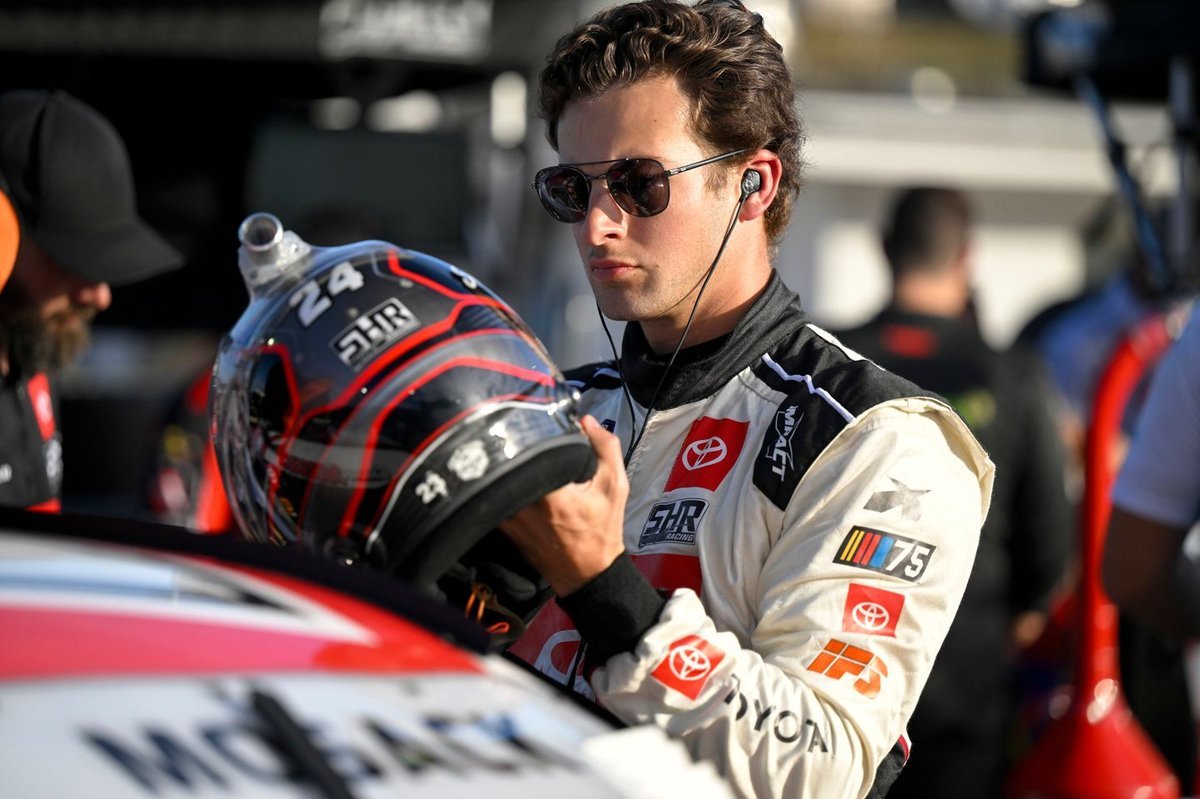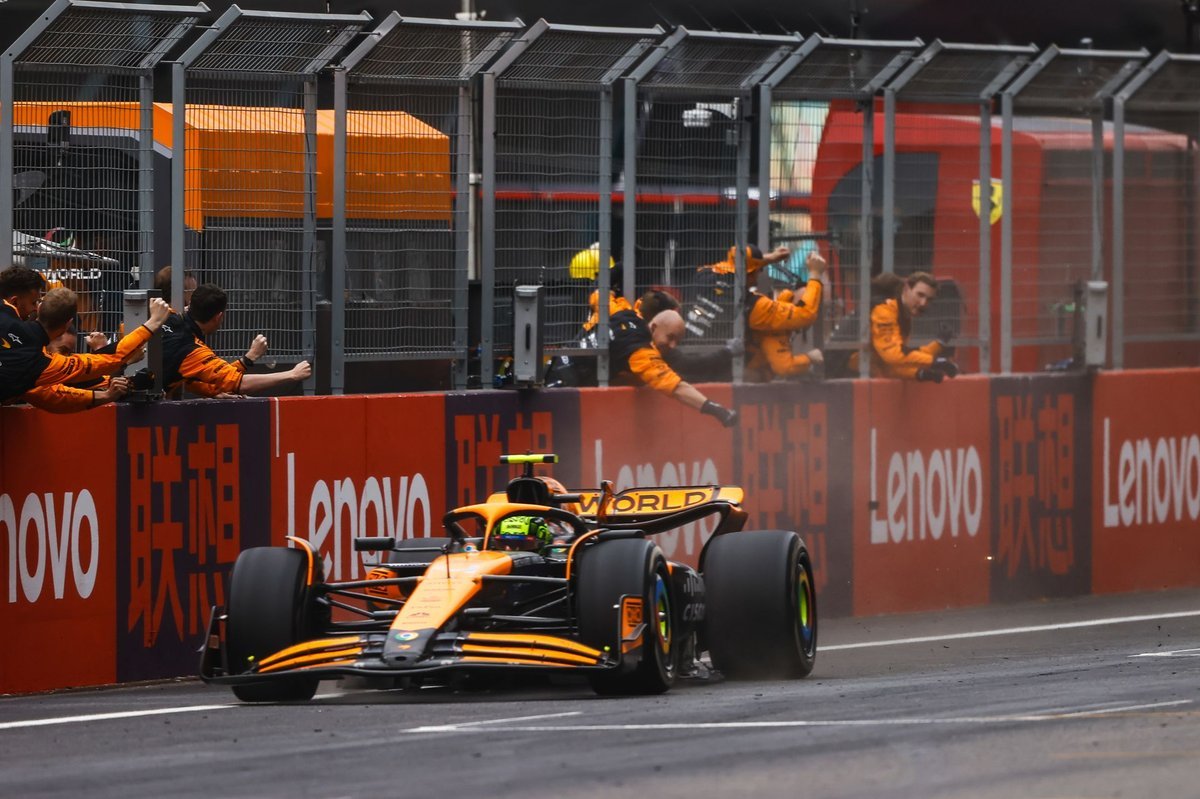
Yuki Tsunoda is no stranger to the pressure cooker environment of Formula 1. But during the 2024 Bahrain Grand Prix, that heat got turned up a notch. With a Top-10 finish and his first point of the season, it might look like a straightforward success story. Yet, when Red Bull team boss Christian Horner labeled his drive “reasonable,” it wasn’t exactly a standing ovation. What does that mean for Tsunoda’s future? And more importantly, what does it reveal about the Red Bull ecosystem’s ever-evolving strategy?
Let’s dig into what made Tsunoda’s Bahrain GP performance so noteworthy—and why “reasonable” might not be enough in the high-stakes world of Red Bull Racing.
Table of Contents
| Sr# | Headings |
|---|---|
| 1 | Yuki Tsunoda’s Bahrain GP: A Quick Snapshot |
| 2 | The 10th Place That Spoke Volumes |
| 3 | Christian Horner’s “Reasonable” Verdict |
| 4 | What Did Horner Really Mean? Reading Between the Lines |
| 5 | The Radio Drama: Tsunoda’s Frustration Over Team Orders |
| 6 | Tsunoda vs Ricciardo: Who’s the Real Lead Driver at VCARB? |
| 7 | Team Orders Timeline: A Visual Breakdown |
| 8 | Why Red Bull Watches More Than Just Lap Times |
| 9 | The Liam Lawson Factor: A Shadow in the Wings |
| 10 | Red Bull’s Ruthless Driver Evaluation Machine |
| 11 | Is VCARB Becoming More Than Just a “B-Team”? |
| 12 | Branding vs Racing: A Battle Behind the Scenes |
| 13 | Tsunoda’s Growth: Is It Enough? |
| 14 | How Bahrain Could Shape the Rest of Tsunoda’s Season |
| 15 | Conclusion: “Reasonable” Isn’t a Career Strategy |
1. Yuki Tsunoda’s Bahrain GP: A Quick Snapshot
Tsunoda’s drive in Sakhir might not have been a headline-grabber, but for him, it was a much-needed result. After finishing 10th and scoring his first point of the 2024 season, it looked like a decent start to the campaign. But as we’ve seen many times in F1, what’s on paper doesn’t always match what’s playing out behind the scenes.
2. The 10th Place That Spoke Volumes
On the surface, P10 is just one point. But in F1’s ultra-competitive midfield, even that can mean a lot. Tsunoda battled through the pack, displayed strong pace, and defended like a seasoned pro. It was a performance that showed maturity and control—both of which he’s been criticized for lacking in the past.
3. Christian Horner’s “Reasonable” Verdict
When Horner called the performance “reasonable,” it raised eyebrows. Was that praise or a polite shrug? In F1 lingo, “reasonable” isn’t usually a rave review—it’s more like saying, “You did okay, but don’t get comfortable.” Horner didn’t highlight any specific strengths, and that speaks volumes.
4. What Did Horner Really Mean? Reading Between the Lines
Red Bull doesn’t do “average.” Every word from Horner is carefully measured. His choice of “reasonable” seemed to sidestep any genuine enthusiasm. This kind of lukewarm endorsement can be deadly in the Red Bull driver ecosystem, where younger, hungrier talents are always on standby.
5. The Radio Drama: Tsunoda’s Frustration Over Team Orders
Tsunoda’s Bahrain performance was overshadowed by one key moment: when he was ordered to let Ricciardo pass. His frustration was obvious over the radio. And while he complied, the energy in his tone made it clear—he wasn’t happy. That kind of tension can eat away at team morale fast.
6. Tsunoda vs Ricciardo: Who’s the Real Lead Driver at VCARB?
While Tsunoda has the edge in experience with the team, Ricciardo brings star power and Red Bull history. Bahrain made it painfully clear that VCARB might still be leaning toward Ricciardo, even when Tsunoda’s the one delivering the results. That’s a tough pill to swallow for any young driver.
7. Why Red Bull Watches More Than Just Lap Times
Scoring points is important, but for Red Bull, it’s about the whole package—racecraft, adaptability, teamwork, and attitude. Tsunoda’s radio messages, while emotionally charged, might count against him in Red Bull’s internal reports. After all, they want warriors, not rebels.
8. The Liam Lawson Factor: A Shadow in the Wings
Let’s not forget Red Bull’s ace up the sleeve—Liam Lawson. He impressed in his brief F1 stint last year and remains a top candidate for a full-time seat. Bahrain didn’t hurt Tsunoda, but it didn’t move him far from Lawson’s shadow either.
9. Red Bull’s Ruthless Driver Evaluation Machine
Red Bull’s junior program is legendary—and brutal. Drivers are constantly assessed, not just on performance, but on attitude and marketability. If you’re not exceeding expectations, you’re at risk. And “reasonable” won’t make the cut when others are gunning for your seat.
10. Is VCARB Becoming More Than Just a “B-Team”?
With its new name, new sponsors, and closer alignment with Red Bull Powertrains, VCARB is being positioned as more than just the feeder team. But that also means more scrutiny, more responsibility, and more high-stakes decisions.
11. Branding vs Racing: A Battle Behind the Scenes
Ricciardo brings a global fanbase and massive brand value. That might explain why he’s sometimes prioritized in strategy calls. Tsunoda, despite doing the hard racing, may struggle to break through that marketing wall unless his results are impossible to ignore.
12. Tsunoda’s Growth: Is It Enough?
Credit where it’s due—Tsunoda has grown immensely. He’s more composed, more focused, and more consistent. But will that be enough in a world where even excellence isn’t always rewarded? It all depends on how he handles the coming races.
13. How Bahrain Could Shape the Rest of Tsunoda’s Season
Bahrain might be a turning point, not just for Tsunoda’s confidence but also for his relationship with the team. If he uses it as a launchpad to deliver “remarkable” rather than just “reasonable” drives, he could force Red Bull to take notice.
14. Conclusion: “Reasonable” Isn’t a Career Strategy
In Formula 1, especially within Red Bull’s ecosystem, you’re either rising or you’re out. Tsunoda’s Bahrain GP performance was solid, but solid doesn’t get you re-signed. Horner’s comments weren’t meant to criticize—but they weren’t celebratory either. For Tsunoda to cement his place, he’ll need to make every race count, leave no doubt about his value, and silence the noise around team orders and internal favoritism.
The next few races will be crucial. Tsunoda can’t just race—he has to impress. Because in F1, especially under Red Bull’s microscope, “reasonable” simply doesn’t cut it.
FAQs
1. Why was Yuki Tsunoda frustrated during the Bahrain GP?
Tsunoda was asked to let teammate Daniel Ricciardo pass late in the race. Despite being in the points and showing good pace, he was ordered to yield—something he did, albeit with clear frustration over the radio.
2. What did Christian Horner say about Tsunoda’s Bahrain performance?
Horner called it “reasonable,” a comment that’s seen as lukewarm. It indicated that while the result was acceptable, it wasn’t standout enough to influence future team decisions in Tsunoda’s favor.
3. Is Yuki Tsunoda at risk of losing his seat at VCARB?
Possibly. With Liam Lawson waiting in the wings and Red Bull constantly evaluating talent, Tsunoda must outperform Ricciardo and show complete alignment with team goals to keep his spot.
4. Did Ricciardo gain anything from the team order at Bahrain?
No. Ricciardo failed to pass the car ahead after Tsunoda let him through. The position swap didn’t change the final team points, adding to the frustration around the decision.
5. What does Yuki Tsunoda need to do to stay in F1 beyond 2024?
He needs more than just scoring points. Consistent top-tier performances, compliance with team strategy, and demonstrating leadership at VCARB will all be key factors in his future.

